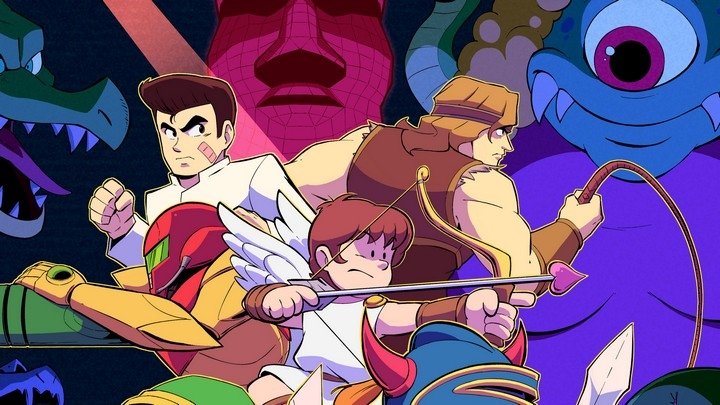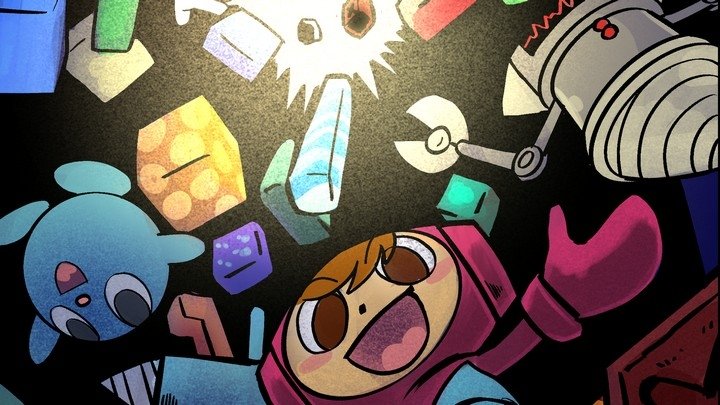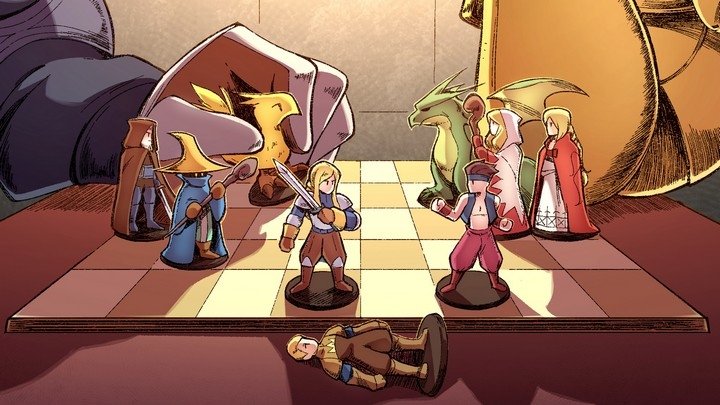Don't sleep on the Radiant Historia remake
It might be doomed to fly forever beneath the radar, but Atlus' time-hopping RPG deserves your love
Over the past few weeks, we've seen some disappointingly spotty classic RPG reissues. The "upgraded" version of Secret of Mana somehow manged to be buggier than the original, featured a less thoughtful user interface, and lost touch with the original game's appealing sense of physicality. Meanwhile, the new Steam release of Chrono Trigger is… well, it's tolerable and plays the same as before, but good lord is it an eyesore.
But wait: There's one other RPG remake that has gone largely unsung, and that's a shame. Atlus' Radiant Historia may not have the fan cachet of a Chrono Trigger — despite revolving around a similar time-traveling premise! — but its new remake for 3DS does precisely what a remake is supposed to do. That is, it takes something good and refines it into something great.
That might not be evident at first glance. Radiant Historia was a dated-looking game on DS, and unlike some of Atlus' other 3DS remakes for games of a semi-recent vintage (think Etrian Odyssey: Untold), Radiant Historia: Perfect Chronology doesn't do anything to improve the looks of things. The backgrounds still consist of low-resolution polygons, and characters still appear as awkwardly scaling sprites superimposed over those boxy settings. The user interface elements look a little nicer, but on the other hand, the great painterly character portraits that appeared through the DS game have been replaced by more generic anime-style character illustrations. Imperial princess Eruca has even lost her distinctive, boyish hairstyle in favor of more stereotypical flowing blonde tresses. In other words, from the perspective of pure looks, Perfect Chronology is a wash at best.

Where this remake shines is in the way Atlus has reworked the actual material of the game. In an interesting and unusual twist, the central story and plot play out the same as always — even the original localization appears to have been untouched. That makes sense, really, given that Radiant Historia has a complicated interlocking story that involves traveling between two parallel timelines, and it sees the hero leaping constantly back into the past in order to take advantages of changes that bleed from one timeline to the other. That would be difficult to rework without breaking all those interlinking elements, really, so Perfect Chronology doesn't even try. Instead, it adds a considerable amount of new material. The number of story "nodes" on the twin timelines — that is, notable or pivotal events that transpire as you play — has been increased by about 25%, with a new character who exists largely outside the central plot dropping in to create some new points of interest.
In truth, the overall number of new events in Perfect Chronology is considerably greater than that, as the timeline now has a "back" side in which you can explore two new critical paths. The first of these allows you to play out a huge number of "What If?" scenarios that spin the primary storyline into a variety of unusual directions. For example, one examines what would happen if the mad scientist behind the game's cyborgs and mech suits were to break down and run rampant himself — a way-out-there scenario that had no place in the original storyline, but which is fun to explore as a standalone, dead-end sequence. The second new feature largely eschews story in favor of a seemingly endless dungeon full of battles to contend with, a challenging grind through a deep dungeon that rewards players with unique gear that can give them a considerable advantage in dealing with the threats they face in the main story mode.
What makes the new dungeon segment especially interesting is the way it overrides the best new element of Perfect Chronology: The ability to turn off random combat encounters. Well, not "random" — like its hero Chrono Trigger, Radiant Historia always allows you to see monsters on the dungeon map before you encounter them. In the game's new "easy" setting, running into an enemy on the field screen stuns them, and striking them nets an instant victory. You can still fight bad guys if you want, but you kind of have to go out of your way to do so. Only bosses and the bonus dungeon remain mandatory full-combat encounters, and even those have been tuned to be decidedly less challenging than they are in the game's standard mode.

Instead, as I explored in my review of the game for Polygon, setting the game to easy mode simply allows you a low-friction opportunity to enjoy and explore the game's complex plot. I'm someone who enjoys meaty role-playing combat mechanics, so the idea of turning off battles for Perfect Chronology initially struck me as blasphemy. After a couple of hours of replaying the standard game mode, though, the faithfulness of the remake meant it felt entirely too much like retreading old ground — literally, in fact, since so much of Radiant Historia amounts to tromping through the same scenes and scenarios in search of minor changes and new outcomes. That's not an inherently bad thing, and in fact it shares a lot in common with the visual novel genre; by hitting "mute" on Radiant Historia's battles, you basically shift the entire thing from one genre to another. An RPG becomes a visual novel, in effect.
On the other hand, Perfect Chronology also introduces a hard mode, which I haven't played much of (you're allowed to switch difficulty levels once, so after I jumped over to easy mode I was stuck there). From what little I've seen, though, it goes the opposite direction: It turns every battle into a desperate, dangerous struggle. Personally, I don't think that approach meshes well with a game as reliant on repetition as Radiant Historia… but the option exists, and I'm all in favor of games that let people play however they like.
The important thing is, Perfect Chronology does a much better job of reworking its original material than you might expect at first glance. It's always been a quality game, and its 3DS remake elevates this material to a new level — it really deserves more attention. The original game showed up at the end of the DS's life and was largely overlooked, and I don't see things shaking out too differently for the remake (which has launched at what surely must be the end of days for 3DS). Don't overlook it, though. Where so many other RPG remakes of late have struggled to recapture the appeal of their original works (let alone improve on it), Radiant Historia: Perfect Chronology demonstrates that sometimes you're better off ignoring the graphics and simply rethinking how to make the game a better experience for players.




